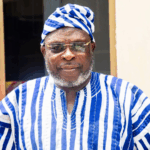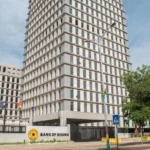
Ghana stands at a critical crossroads. Our beloved nation, blessed with abundant human and natural resources, continues to struggle not because we lack ideas or effort, but because we have lost our systemic direction.
We have a confused policy for the system, slogans for structure, and politics for purpose.
I write not as a partisan voice, but as a patriot deeply concerned about the path we are treading. I have never held a political party card, and I speak not for a political movement but for the Ghanaian conscience. My message is simple: Ghana needs a national reset.
The Lost Blueprint
The Reset Agenda, introduced by the administration of President John Dramani Mahama, was more than a political project—it was a moment of national reawakening. It was a model designed to restore Ghana’s moral, structural, and economic foundation.
Sadly, what was meant to be a transformative system was quickly buried under waves of politically convenient programs and campaign slogans, such as the 24-hour economy. While such policies sound attractive, they are not substitutes for a systemic transformation.
A policy is temporary; a system endures. A policy may solve a problem today, but only a system can prevent that problem from recurring tomorrow.
The developed nations we admire built their progress not on promises, but on systems—governance structures anchored on accountability, purpose, and shared responsibility.
What the Reset System Means
The Reset System is not a political ideology—it is a governance philosophy rooted in order, decentralisation, and moral leadership. It calls for a return to fundamentals: God-centered values, institutional integrity, and people-driven administration.
The core of this system is decentralisation. Power must not be trapped in Accra. Our 16 regions must be given administrative autonomy to plan, execute, and monitor their own development. Let every region become a hub of innovation and growth—guided by local wisdom, not distant bureaucracy.
Each region should be governed through an Advisory Council composed of paramount chiefs and representatives of women, men, and youth. A regional administrator, chosen from among distinguished citizens—not party loyalists—should oversee the region’s affairs.
If every region manages its own affairs, Ghana will see balanced development. No community will need to wait decades for progress to trickle down. Local empowerment will attract diaspora investment, reduce government dependency on foreign loans, and ignite a true people’s economy.
Reclaiming Chieftaincy in Governance
Before there was a president, there were chiefs. Before independence, our ancestors governed through consensus, accountability, and community ownership. Today, chieftaincy has been sidelined, and governance has become detached from the people it serves.
The reset model seeks to restore that link. Chiefs and community leaders must once again become central actors in national decision-making. Governance should not be about politicians ruling from above but about leaders serving from within their communities.
Reset and National Security
A decentralised system not only builds development—it strengthens security and fights corruption. When power is localised, citizens can see, question, and monitor leadership directly.
When every region takes ownership of its governance, corruption loses its hiding place. Bureaucratic manipulation and political dominance give way to transparency and accountability. Local vigilance becomes the best national defence.
A Call for Reflection and Renewal
Since the dawn of the Fourth Republic, Ghana has made progress in democracy but not in national reconstruction. We have built elections, not systems. We have changed governments, not governance.
We must rebuild the broken walls of our nation through the reset system by aligning our leadership with purpose, decentralising power, and reclaiming the moral and cultural values that once defined us.
Just as God created order before creation flourished, Ghana must establish systems before development can be sustained. Without a reset, we risk building structures on sand.
This is Not About Politics
I am not calling for partisan reform. I am calling for national renewal. Ghana belongs to all of us—those at home and those in the diaspora. It is time to build together, not through slogans, but through structure; not through personalities, but through principles.
Let us stop chasing political mirages and start rebuilding from within. Let us reset Ghana for the sake of the generations to come.
About the Writer
Dr Tom Asiseh is the Founder of the Ghanaian Diaspora Movement (GDM) and an Independent Presidential Aspirant.
He advocates for a value-based leadership model anchored on decentralisation, accountability, and spiritual renewal as the foundation for Ghana’s development.



